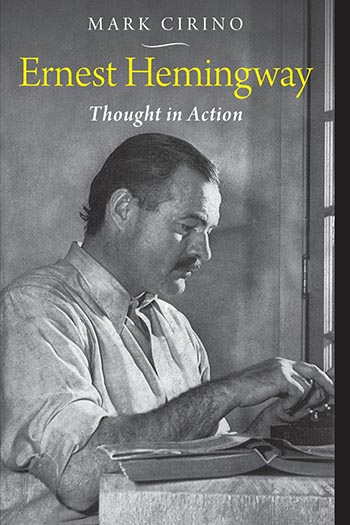How did one of history's greatest writers — Ernest Hemingway — get going with his craft, develop his indelible style, and infuse his narratives with memorable life and compelling tension? Today we delve into the answers to those questions with Hemingway scholar Mark Cirino, who is a professor of English, the editor and author of half a dozen books on Hemingway — including Ernest Hemingway: Thought in Action — and the host of the One True Podcast which covers all things related to Papa.
How did one of history's greatest writers — Ernest Hemingway — get going with his craft, develop his indelible style, and infuse his narratives with memorable life and compelling tension?
Today we delve into the answers to those questions with Hemingway scholar Mark Cirino, who is a professor of English, the editor and author of half a dozen books on Hemingway — including Ernest Hemingway: Thought in Action — and the host of the One True Podcast which covers all things related to Papa. Mark and I our begin our conversation with how Hemingway cut his teeth with writing as a journalist, how the "iceberg theory" underlay his approach to writing as a novelist, and how his years in Paris — and the books, people, and art he encountered there — influenced his work and the trajectory of his career. We then discuss how his travel and recreational pastimes allowed him to write with a vivid firsthand understanding of certain places and pursuits, what his writing routine was like, and how the characters in his novels explore the tension between thought and action. We end our conversation with Mark's recommendation for where to start reading Hemingway if you've never read him or haven't read him in a long time, and what Mark thinks was Hemingway's "one true sentence."
